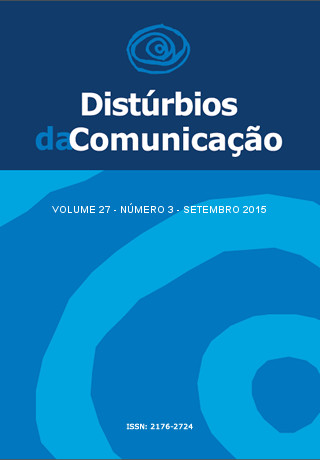Implicações de um diagnóstico: o que sentem as famílias dos sujeitos com deficiência?
Palavras-chave:
Pessoas com deficiência, Diagnóstico, Relação familiar.Resumo
O presente trabalho objetiva evidenciar e discutir os sentimentos, as impressões pessoais e as características atribuídas pela família no que se referea ter um filho com deficiência. No caso desta pesquisa, todos apresentaram significativas alterações de linguagem subjacentes ao diagnóstico de autismo ou de paralisia cerebral. Metodologicamente caracterizou-se como uma pesquisa do tipo Estudo Qualitativo de Casos, com descrição numérica de categorias. Ao todo foram pesquisados 10 sujeitos. Todas as famílias foram submetidas a entrevistas iniciais, que foram transcritas e analisadas resultando num corpus de 20 relatórios. Como resultados, apontam-se as regularidades presentes nos discursos familiares em relação ao diagnóstico da deficiência, organizados posteriormente em 10 categorias: visão negativa (a rejeição, o susto, a tristeza, a agressividade, o preconceito, a dependência, o diferente, a dificuldade e a superproteção) e visão positiva (as potencialidades). Por meio deste estudo, foi possível contribuir para um melhor entendimento das implicações advindas do nascimento dessas crianças no seio familiar, bem como construir um material que dê subsídio e meios aos profissionais que buscam amparar tais sofrimentos na clínica fonoaudiológica e colaborar com essas famílias no enfrentamento de suas angústias e expectativas, conferindo-lhes a possibilidade de instituir uma nova visão sobre a criança com deficiência.
Downloads
Métricas
Downloads
Publicado
Edição
Seção
Licença
Copyright (c) 2015 Rosana Carla do Nascimento Givigi, Thaís Alves de Souza, Raquel Souza Silva, Solano Sávio Figueiredo Dourado, Juliana Nascimento de Alcântara, Marília Vasconcelos Araújo Lima

Este trabalho está licenciado sob uma licença Creative Commons Attribution 4.0 International License.









